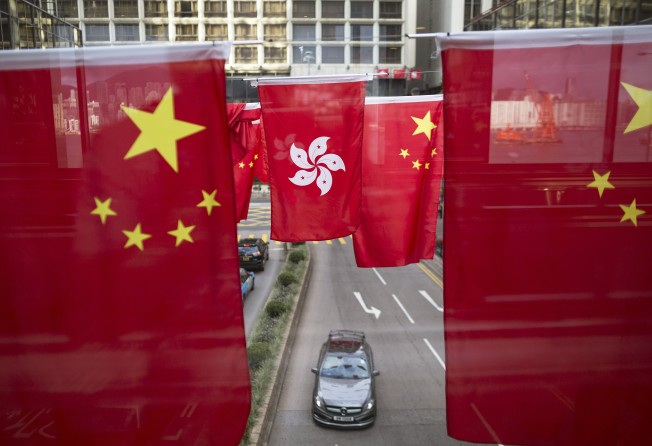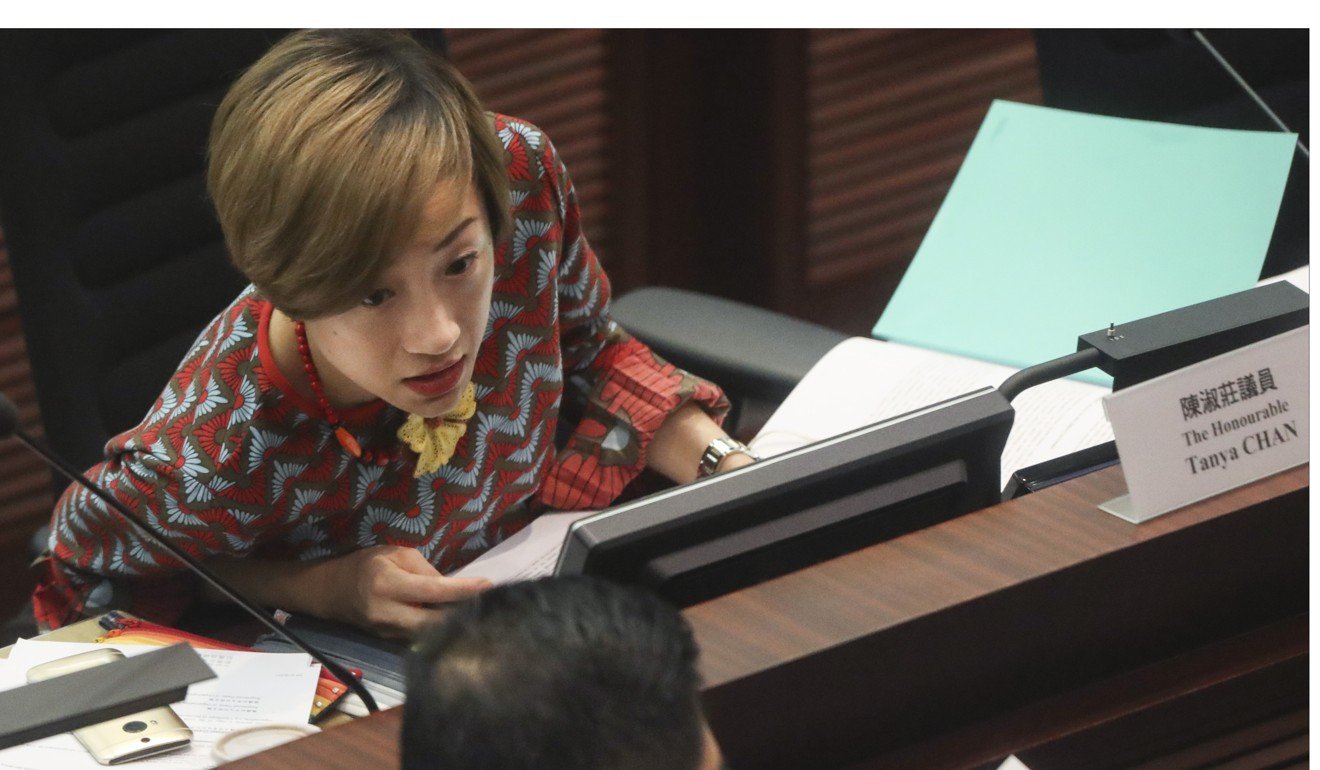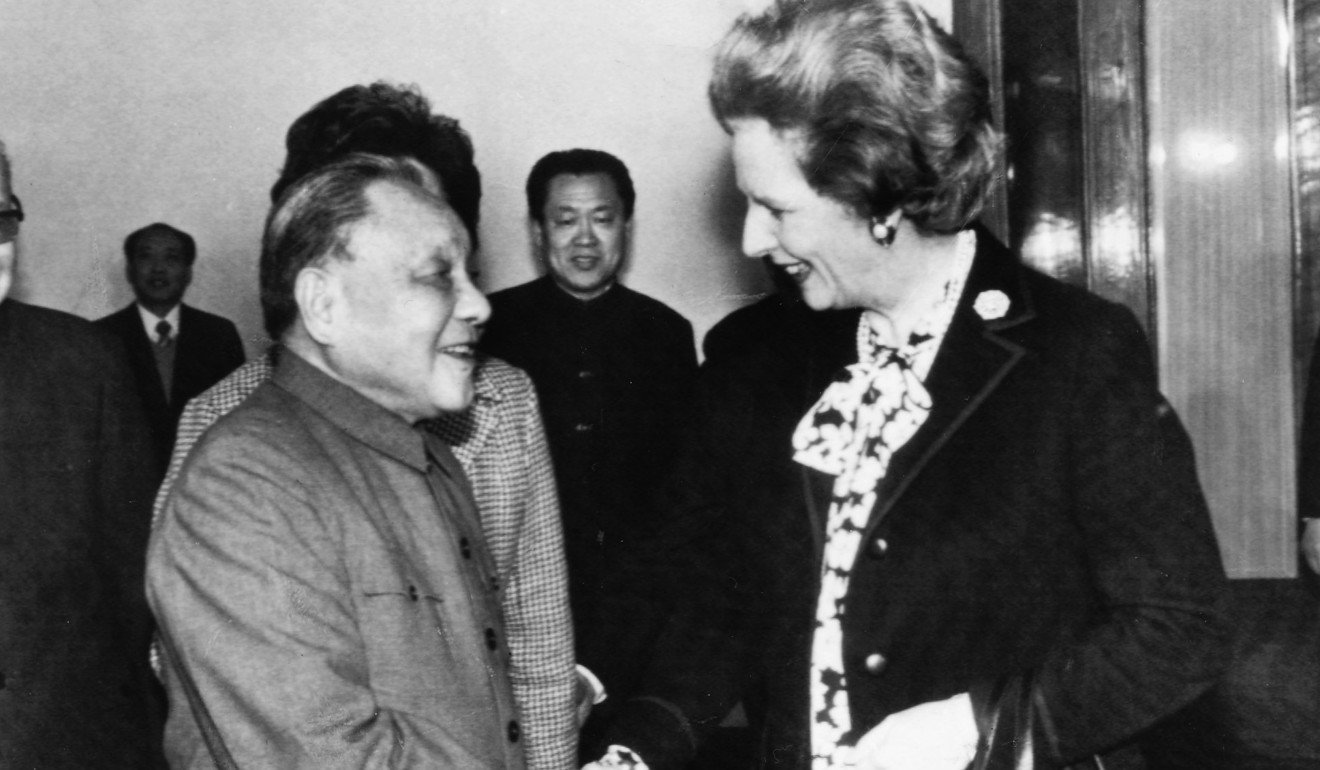Beijing says Sino-British treaty on Hong Kong handover still binding but does not allow UK to interfere
Foreign ministry official clarifies colleague’s remarks and says nation is committed to uphold ‘one country, two systems’ under the Basic Law

Beijing conceded on Saturday that the Sino-British Joint Declaration was legally binding, but insisted the 1984 treaty to enable Hong Kong’s handover to China in 1997 did not give Britain the right to interfere in the city’s affairs.
Xu Hong, director general of the Chinese foreign ministry’s treaty and law department, sought to clarify a colleague’s recent remarks suggesting the irrelevance of the treaty. He also assured Hong Kong that Beijing was committed to upholding the “one country, two systems” policy – not under the treaty, but because of a commitment in the city’s mini-constitution.
Xu was referring to ministry spokesman Lu Kang’s statement on June 30, the eve of the 20th handover anniversary, that the treaty had become “a historical document that no longer has any realistic meaning” and did not have “any binding power on how China administers Hong Kong”.
Britain hit back at Lu, insisting the treaty remained legally binding and it was committed to monitoring its implementation.
On the sidelines of an international law conference in Hong Kong on Saturday, Xu noted the concerns over Lu’s statement.
“He said ‘it no longer has realistic meaning’. This is understandable when we look at the issue against the background that some country was trying to use the joint declaration for pointing fingers,” Xu said. “But we have never denied the fact that the joint declaration is a treaty.”
While acknowledging the document registered with the United Nations was “not without [legally] binding effect”, he pointed out that its main text only mentioned Britain would “restore” Hong Kong to China, but included no provision for its rights and responsibilities after the handover.
China’s basic Hong Kong policies, elaborated in annex I of the joint declaration, were a “unilateral” declaration over which Britain had no say, he added.

“Just imagine, how would China sign something that would let Britain interfere in its domestic affairs?” Xu said.

Days after the Post’s enquiry, a British foreign office spokeswoman said the UK Minister of State for Asia and the Pacific, Mark Field, had already met the Chinese ambassador Liu Xiaoming on July 5 regarding the importance of one country, two systems as the basis for continued success.
She said Field had made clear the UK’s commitment to the treaty and that the minister “did not accept the Chinese government’s position that this was purely an historical document”.
The spokeswoman maintained the declaration, registered with the UN, “remain[ed] as valid today as it did when it was signed over thirty years ago” and that “the UK government is committed to monitoring its implementation closely”.
“The government’s six-monthly reports to Parliament set out our assessment of developments in Hong Kong and our commitment to the faithful implementation of the Joint Declaration on Hong Kong,” she added.
Citing President Xi Jinping’s speech during his visit to celebrate the handover anniversary on July 1, Xu stressed that Beijing was committed to upholding “one country, two systems”. Those principles had been incorporated in the Basic Law, which, together with the Chinese constitution, formed the city’s constitutional foundation, he added.
Asked how China would assure the world that it respected the spirit of international law, given Britain’s interpretation of the treaty, Xu replied: “Britain has its own argument. I don’t think other countries share its view.”
You cannot just ask a party to the agreement to only look at the main text and ignore the annex
Civic Party vice-chairwoman Tanya Chan, a barrister, said Xu had made an “awkward clarification based on a fallacy”.
“The annex is part of the treaty. You cannot just ask a party to the agreement to only look at the main text and ignore the annex.”
Michael Davis, former law professor at the University of Hong Kong, said Article 7 of the Joint Declaration’s main text “clearly made all provisions of the treaty binding on both parties”.
That article says both the UK and Chinese governments “agree to implement the preceding declarations and the annexes”.
Davis added: “One could also raise the questions about the importance of the Chinese having taken the treaty to all the leading capitals of the world, including London, and asking those governments to treat Hong Kong distinctly both as to trade and immigration.
“If the Chinese government had expected those governments to do so, would those governments therefore have an interest in China’s performance of its Hong Kong policies laid out in both the Joint Declaration and the Basic Law?”